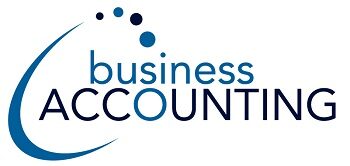Money management and control throughout one’s lifetime are essential to gain financial fitness and security. Although some people try to plan their finances on their own, there is much the impartial observation of a professional can add: accuracy, objectivity, and a decisive edge. Accountants specialize in tax and financial reporting and are professionals in developing specific financial solutions to ensure the client’s short-term and long-term objectives are met. By leveraging their technology and appreciating the circumstances of each client they attend to, accountants substantially contribute to creating a positive financial status for clients.
The following are five ways through which accountants can help in personal finance and budgeting:
1. Tax Planning and Optimization
Regarding taxation, accountants in Gloucester have a better understanding of the tax laws, and in accordance with that, they assist clients in managing their resources about taxes. This being the case, accountants can devise a tax plan that suits an individual income, investments, and expenditures. Thus, an individual’s tax amount should be decreased while still considering the law. Such a proactive tax control helps individuals avoid spending money unnecessarily for their goals by giving it out in taxes.
2. Setting and Monitoring Financial Goals
Family and other financiers help people identify short- and long-term objectives to help them save for a home, retirement, or college. They assist in defining how these goals can be met in sub-steps when they can be met, and the essential financial parameters. By reviewing the budget periodically and, when necessary, making revisions, accountants help their clients stay on the right financial plan throughout the year depending on some fundamental changes in their economic or personal lives.
3. Budget Creation and Analysis
An accountant in Cheltenham can help an individual develop a near-perfect working plan that fits an individual’s lifestyle, level of income, and aspirations, among other factors. This involves examining the existing patterns of expenditure, concluding and indicating what areas of expenditure are appropriate for improvement. Accountants must also frequently scrutinize and evaluate the performance with budgets so that the clients remain committed to responsible spending and savings plans.
4. Investment Guidance
Accountants aren’t investment advisors, but they can assist clients in realizing how investments mesh into the overall picture. Based on the client’s risk appreciation, investment goals, and plans, accountants make the right recommendation about the portfolio’s ideal proportion in relation to taxation and returns. Accountants work in cooperation with certified financial planners to ensure that the investments made fit other finance planning areas.
5. Debt Management and Reduction
Accountants are in the position of solving debt portfolios and determining the most efficient method of repaying liabilities accruing high interest rates. Thus, by sorting it out according to the interest rates and the amounts of principal debts paid, they assist their clients in minimizing the interest payable in the long run. Accountants can also propose terms within the lending practices that can reduce monthly fees and increase overall cash flow.
Final Thoughts
These solutions offered by accountants go beyond simple calculations for personal finance management and budgeting processes environments, for they provide a range of needs and assistance enshrouded in PFP. Tackling all the economic aspects, including strategic tax planning, personal budgeting, or ideal investment, those insights assist personal planning while keeping the future in mind. Clients can enjoy a definite method of handling their money matters as proposed by the accountant to amass wealth, reduce their debts, and transform their economic lives into more prosperous ones. This professional advice, in turn, helps specific and general financial security and wealth creation.




